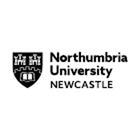- اخبار و مقالات
- Find usIDP AustraliaIDP BahrainIDP BangladeshIDP CambodiaIDP CanadaIDP ChinaIDP EgyptIDP GhanaIDP Hong KongIDP IndiaIDP IndonesiaIDP IranIDP JordanIDP KenyaIDP KoreaIDP KuwaitIDP LebanonIDP MalaysiaIDP MauritiusIDP Middle EastIDP NepalIDP New ZealandIDP NigeriaIDP OmanIDP PakistanIDP PhilippinesIDP Saudi ArabiaIDP SingaporeIDP Sri LankaIDP Taiwan, ChinaIDP ThailandIDP TurkeyIDP UAEIDP VietnamIDP Corporate
- Social
- فارسی
- Where we operate
- Courses
- Scholarships
- IELTS
- About IDP
- Student Essentials
- اخبار و مقالات
- Find us
- Find us
- Find nearest IDP offices
- IDP Australia
- IDP Bahrain
- IDP Bangladesh
- IDP Cambodia
- IDP Canada
- IDP China
- IDP Egypt
- IDP Ghana
- IDP Hong Kong
- IDP India
- IDP Indonesia
- IDP Iran
- IDP Jordan
- IDP Kenya
- IDP Korea
- IDP Kuwait
- IDP Lebanon
- IDP Malaysia
- IDP Mauritius
- IDP Middle East
- IDP Nepal
- IDP New Zealand
- IDP Nigeria
- IDP Oman
- IDP Pakistan
- IDP Philippines
- IDP Saudi Arabia
- IDP Singapore
- IDP Sri Lanka
- IDP Taiwan, China
- IDP Thailand
- IDP Turkey
- IDP UAE
- IDP Vietnam
- IDP Corporate
- Social
- LANGUAGE_SWITCHER
- آموزش IDP /
- کالج ها و دانشگاه ها /
- United Kingdom /
- Northumbria University /
- MSc Economics and Sustainab...


Location
United Kingdom
صلاحیت
Masters Degree (Taught)
شهریه ها
GBP11000
(2025)
مدت زمان
2 Year(s)
پذیرش بعدی
22 September 2025
امتیاز ورود
6.5
آیلتسCOURSE_INFO
Graduates of the MSc Economics and Sustainability will be perfectly prepared to pursue a wide range of careers in the field of environmental economics, as well as in economics, finance and related areas. Potential job roles this programme could prepare students for include environmental economist, policy adviser, analyst, journalist, researcher or academic, and employers range from government, international organisations, industry, NGOs and consultancy. As part of this course, you will build a portfolio of materials that can be presented to employers to demonstrate your development and appropriateness for roles in the fields of economics and sustainability, the content of which will be informed by the work you undertake in the modules you study. This course is also ideal if youre interested in a career in academic research, and successful graduates may be eligible for advanced entry onto our PhD or DBA programmes. Whatever you decide to do, you will have the transferable skills that employers expect from a master's graduate from Northumbria University. These include the ability to tackle complex issues through conceptualisation and undertaking research, the ability to contribute to new processes and knowledge, and the ability to formulate balanced judgements when considering incomplete or ambiguous data.
- کمک هزینه تحصیلی کمک هزینه ی تحصیلی
- دوره های کارآموزی
هزینه دوره ها یک شاخص است و باید به عنوان راهنما مورد استفاده قرار گیرد گرفتن اطلاعات دقیق عزینه
Duration: 2 Year(s)
Fees: GBP11000
| پذیرش | Location |
|---|---|
| Semester 1 (September), 2025 | Newcastle-upon-Tyne |
| Semester 1 (September), 2026 | Newcastle-upon-Tyne |
نیازمندی های ورود به Northumbria University
International applicants are required to have a minimum overall IELTS (Academic) score of 6.5 with 5.5 in each component
ددلاین اپلیکیشن
تاریخ ددلاین مشخص نیست با یک مشاور IDP صحبت کنید برای اطلاعات بیشتر
Further information
If you aren't eligible for the above entry requirements, you might ant to explore pathway options at Northumbria University. If you want to find out more, speak to our counsellors.
رتبه جهانی
401st / 1250
رتبه جهانی36th / 130
راهنما کامل دانشگاهدانش اموزان ما چگونه فکر می کنند؟
هنوز نظری در مورد این موسسه دریافت نکرده ایم
پیشنهادات برای شما
- کارشناسی ارشد
- United Kingdom
- DEADLINE: 31 May 2025
- نوع کمک هزینه تحصیلی: Fee waiver/discount
- کارشناسی ارشد
- United Kingdom
- نوع کمک هزینه تحصیلی: Fee waiver/discount
- کارشناسی ارشد
- United Kingdom
- نوع کمک هزینه تحصیلی: Fee waiver/discount
- کارشناسی ارشد
- United Kingdom
- نوع کمک هزینه تحصیلی: Fee waiver/discount
- کارشناسی ارشد
- United Kingdom
- نوع کمک هزینه تحصیلی: Fee waiver/discount
- کارشناسی ارشد
- United Kingdom
- نوع کمک هزینه تحصیلی: Fee waiver/discount
- کارشناسی ارشد
- United Kingdom
- نوع کمک هزینه تحصیلی: Free products/services
- کارشناسی ارشد
- United Kingdom
- نوع کمک هزینه تحصیلی: Fee waiver/discount
Your action plan
گام 1
Shortlist your courses
Choose the best three courses you’re most likely to pursue.
گام 2
Check your eligibility
Get an instant in-principle offer for courses with the IDP FastLane tag.
گام 3
Apply through IDP Live
Fill out the form once and use it to apply to multiple courses.
اپلیکیشن فست لین IDP چگونه کار می کند؟
با "پذیرش مشروط" FastLane ظرف چند دقیقه می توانید در مورد پذیرفته شدن تان در دانشگاه با خبر شوید
یک موسسه یا دوره را انتخاب کنید
یک پروفایل آکادمیک ایجاد کنید
درخواست خود را برای "پیشنهاد مشروط" ارسال کنید
موسسه(ها) مورد نظر تان ظرف مدت چند دقیقه تصمیم خود را به شما اعلام خواهد کرد
برای درخواست پذیرش با کمک یک مشاور آماده شوید




